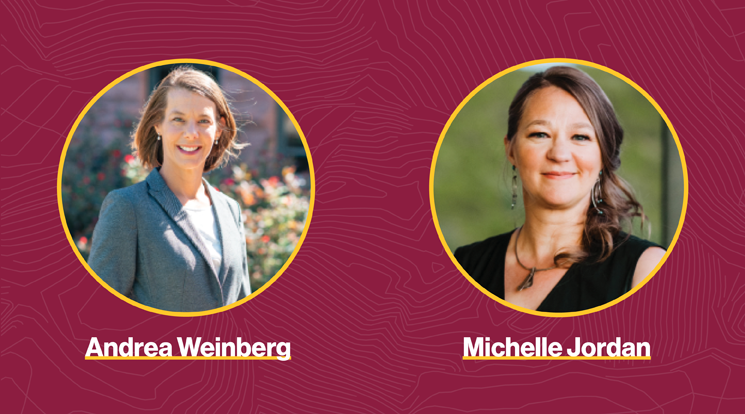Faculty publication roundup, January 2025

The research papers and publications listed below are a sampling of recent contributions by faculty representing Arizona State University’s Mary Lou Fulton College for Teaching and Learning Innovation. Please see links below for full authorship credits.
“Third Space Through Collaboration, Coteaching, and Pedagogies of Practice: Exploring Outcomes and Opportunities”
The New Educator
Andrea Weinberg, associate professor; Elizabeth A. Ruiz, graduate service assistant with a PhD in Educational Policy and Evaluation.
Working with a teacher at Shepardson Elementary School in Fort Collins, Colorado, Weinberg sought to create Third Spaces for teacher candidates as they implement reading lessons, providing collaboratively designed clinical experience leveraging peer coteaching alongside the pedagogies of practice framework. The quasi-experimental mixed-methods study advances the understanding of pedagogies that aim to balance rigorous coursework with meaningful clinical experiences by uniting theory and practice. Findings based on the TCs’ reflections, exam scores and lesson plans indicate these efforts were successful in creating opportunities for TCs to experience Third Spaces where theoretical and practical knowledge meet. The ability of the TCs to respond to student needs was enhanced and reading achievement of elementary-aged students improved.
“Igniting kid power: The impact of environmental service-learning on elementary students' awareness of energy problems and solutions”
Energy Research & Social Science
Andrea Weinberg, associate professor
This study in fourth-grade classes focused on Connect Science, a service-learning program to enhance elementary students' energy literacy. The research team comprised Weinberg, Eileen Merritt of Virginia Tech (formerly an MLFTC assistant professor and senior sustainability scholar in ASU’s Julie Ann Wrigley Global Institute of Sustainability), Candace Lapan of Wingate University and the University of Virginia’s Sara Rimm-Kaufman. Teachers in the intervention group were provided with professional development, coaching and curricular materials, then allowed their classes to choose an energy problem and design projects to test a solution. Teachers in the control group taught their typical energy unit. Students were then asked to write about a problem related to energy production or use. The majority of students in the intervention group expressed concerns about wasting or using too much electricity or the use of nonrenewable energy sources, while control group student responses more often focused on electric circuits or electrical safety.
“Real Work, Real Consequences’: an action-oriented pedagogies (AOP) framework for sustainability education in K–12 classrooms”
Sustainability Science
Andrea Weinberg, associate professor; Michelle Jordan, associate professor; Rebekah Jongewaard, graduate research assistant pursuing a PhD in Learning, Literacies and Technologies.
The authors combine their experience in K–12 and higher education STEM and sustainability teaching-learning environments with knowledge from scholars in wide-ranging fields to present this framework for positioning K–12 students as agentic learners taking sustainability action. They introduce the action-oriented pedagogies framework to inspire optimism in the collective ability to address interlocking sustainability crises and contribute to the advancement of cultural and social shifts necessary to achieve more ecologically attuned and socially just futures. Then they identify three necessary educational shifts to advance sustainability education and their relationship to three key attributes of AOP: imagining preferred futures where ecological and social justice prevail, planning co-produced impact and taking agentic action. Finally, the authors present a cyclical model for implementing AOP in K–12 classrooms, illustrating ways teachers can enact pedagogies that position students to engage alongside them in meaningful efforts to advance sustainability.
The summaries listed here are reprinted from paper and publisher abstracts. They are a sampling of the many published projects by MLFC faculty.